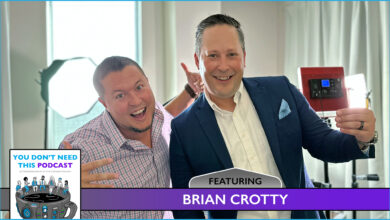I Love You The Power Meaning and Impact of Three Simple Words

Few phrases carry as much weight, emotion, and significance as “I love you.” These three simple words can change relationships, heal wounds, and create deep connections between people. But what does “I love you” truly mean? Why is it so powerful? And how has its meaning evolved over time? In this article, we’ll explore the depth of these words, their cultural significance, and the impact they have on individuals and relationships worldwide.
The Meaning Behind “I Love You”
At its core, “I love you” is an expression of deep affection and care. However, its meaning can vary depending on the context and the person saying it. Love can take many forms, including:
- Romantic Love: When said between partners, “I love you” expresses deep emotional and often physical affection. It signifies commitment, devotion, and passion.
- Familial Love: Parents, siblings, and relatives use to reinforce the strong bond that exists between family members.
- Friendship Love: Close friends may say as a way of expressing their appreciation, trust, and connection.
- Self-Love: Saying to oneself is an important part of personal growth, self-acceptance, and mental well-being.
- Universal Love: Some people use in a broader sense, extending their love to humanity, nature, or even a spiritual entity.
The Psychological Impact of Saying “I Love You”
Sayinghas profound psychological effects on both the speaker and the recipient. Studies in psychology suggest that expressing love:
- Strengthens Relationships: Regularly expressing love in words fosters deeper emotional intimacy and trust between people.
- Reduces Stress and Anxiety: Feeling loved and expressing love releases oxytocin, the “love hormone,” which helps reduce stress levels.
- Boosts Self-Esteem: Knowing that someone loves you unconditionally can increase confidence and self-worth.
- Enhances Emotional Well-Being: Love and affection contribute to happiness and life satisfaction.
When and How to Say “I Love You”
Many people wonder about the right time and way to say While there is no universal rule, here are some tips to consider:
- Say It When You Mean It: Avoid saying out of obligation or expectation. Authenticity matters.
- Look Into Their Eyes: Making eye contact while saying these words enhances sincerity.
- Express It Through Actions: Sometimes, actions speak louder than words. Showing love through kindness, support, and care can be just as powerful.
- Say It Often: Love should not be taken for granted. Expressing it frequently keeps relationships strong.
The Cultural Significance of “I Love You”
The way “I love you” is expressed varies across cultures. In some cultures, it is said openly and often, while in others, love is demonstrated through actions rather than words. Here are a few cultural perspectives:
- Western Cultures: In countries like the United States and the United Kingdom, saying is common in romantic relationships and families.
- Asian Cultures: In places like Japan and China, love is often expressed through actions rather than words. Saying directly may feel too intense or unnecessary.
- Latin Cultures: In countries like Mexico and Spain, people tend to be expressive and affectionate, making a frequent phrase.
- Middle Eastern Cultures: While love is deeply valued, public expressions of may be more reserved, especially in romantic relationships.
The Evolution of “I Love You” in the Digital Age
Technology has changed the way people express love. In today’s digital world, can take various forms:
- Text Messages and Emojis: People frequently use “ILY,” “luv u,” or heart emojis ❤️ to express love.
- Social Media: Platforms like Instagram and Facebook are filled with love declarations through posts and comments.
- Voice and Video Calls: With long-distance relationships more common, saying “I love you” over video calls has become a lifeline for many.
- AI and Virtual Relationships: Some people even express love to AI chatbots or virtual assistants, showcasing how love continues to evolve with technology.
The Fear of Saying “I Love You”
Despite its power, many people hesitate to say The fear often stems from:
- Fear of Rejection: The risk of not hearing it back can make people reluctant.
- Commitment Issues: Some see as a serious commitment and may not be ready to say it.
- Past Trauma: Negative past experiences with love can make expressing it difficult.
- Uncertainty About Feelings: Some people need time to process their emotions before declaring love.
Overcoming this fear requires self-reflection, emotional vulnerability, and trust in the relationship.
The Role of “I Love You” in Healing
Love is a powerful healer. Saying “I love you” can:
- Mend Broken Relationships: A heartfelt can help repair misunderstandings and conflicts.
- Provide Comfort in Difficult Times: Hearing these words during hardships can offer immense emotional support.
- Strengthen Bonds During Loss: Expressing love to those grieving reminds them they are not alone.
Conclusion
“I love you” is more than just a phrase; it’s an emotion, a promise, and a connection. Whether spoken, written, or demonstrated through actions, love has the power to transform lives. Understanding its significance and using it wisely can bring more joy, peace, and fulfillment to our relationships and personal well-being.
So, if you love someone—whether a partner, friend, family member, or even yourself—don’t hesitate to say it. You never know the positive impact it might have!



